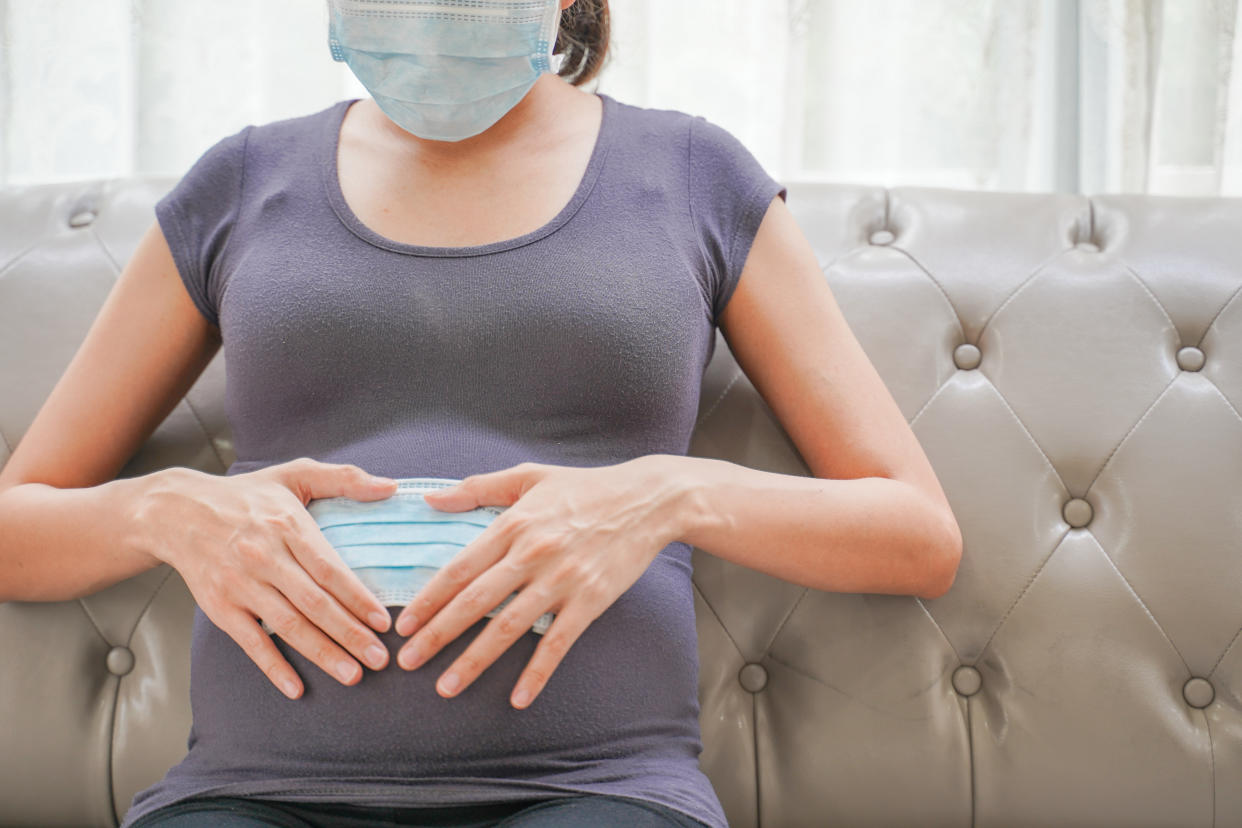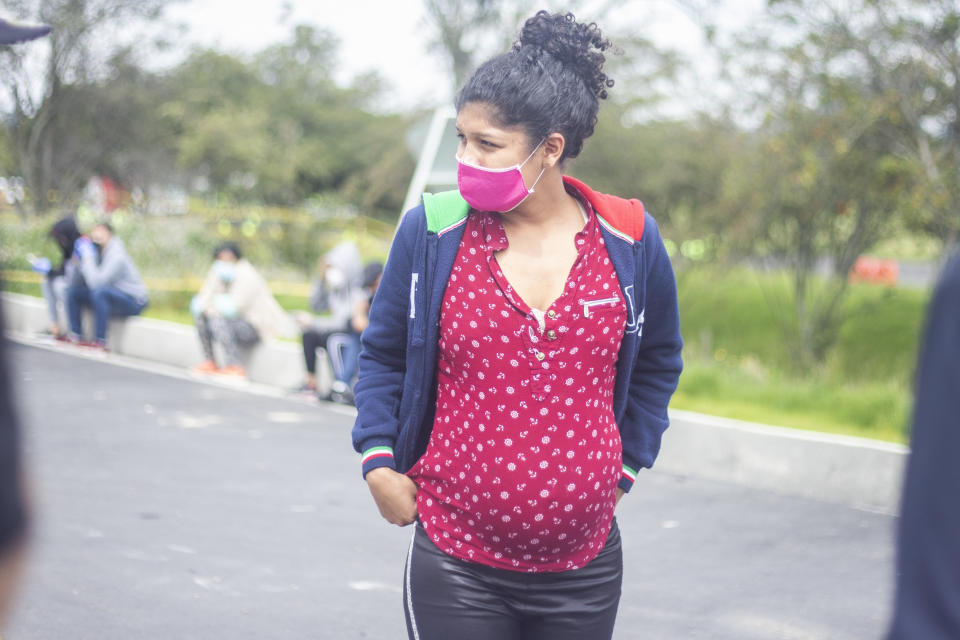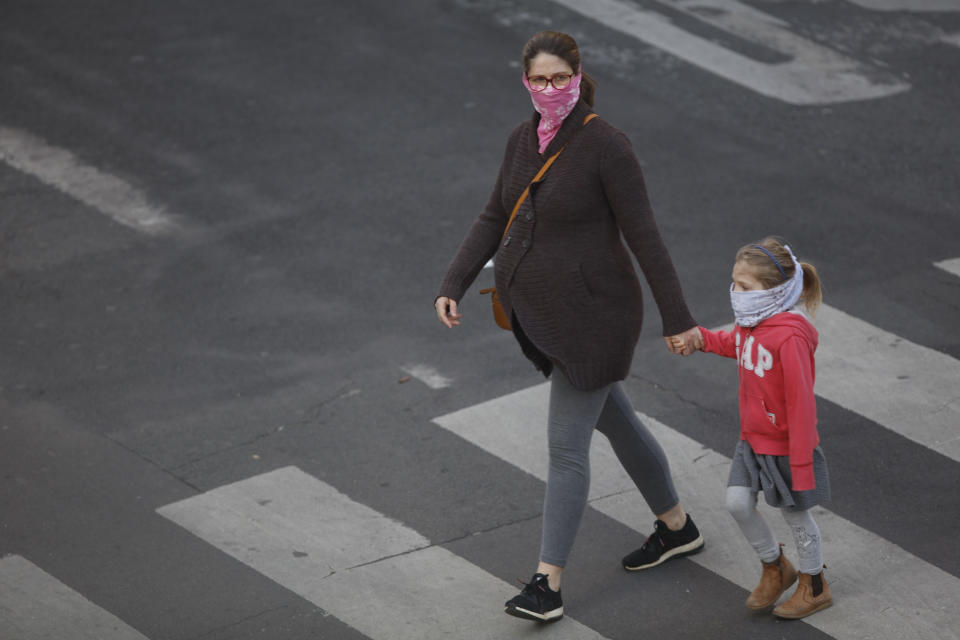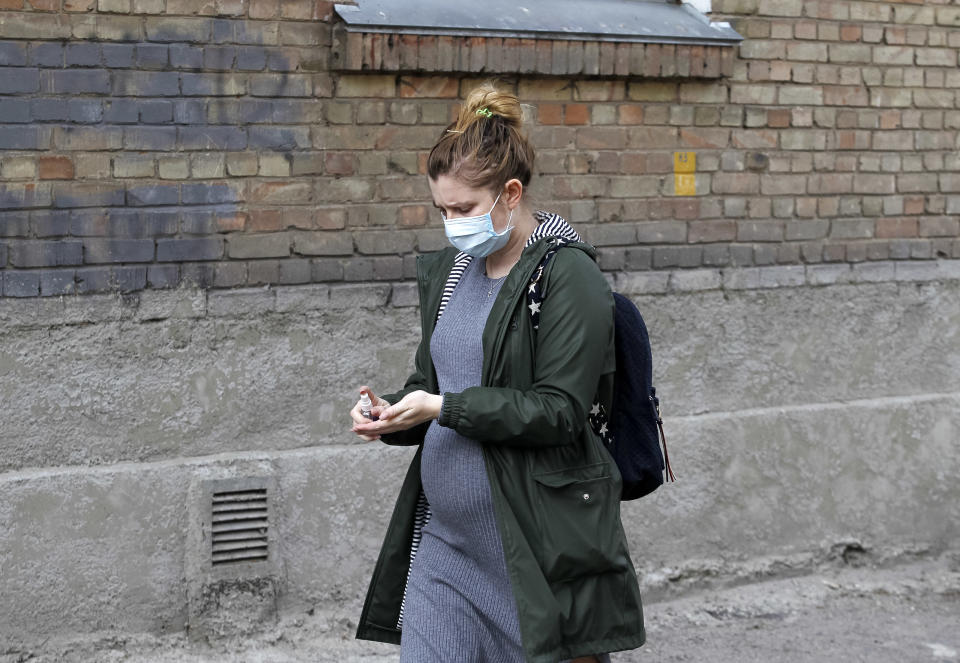Coronavirus: Post-pandemic baby boom unlikely as couples put plans to have children on hold

The coronavirus outbreak has left much of the world on lockdown.
With socialising off the cards, couples may have just each other for company for the foreseeable future.
While pessimists have raised concerns divorce rates could soar once restrictions are lifted, romantics are anticipating a baby boom.
A study by the University of Florence, however, suggests most couples will not be adding to their brood during the pandemic.
Money worries and concerns about how the coronavirus could affect pregnancy are thought to be putting many off having a baby.
Early research suggests the infection is mild in four out of five cases, however, it can trigger a respiratory disease called COVID-19.

Coronavirus: Research suggests we are not heading towards a baby boom
The scientists carried out online interviews where they asked people who had been in a heterosexual relationship for at least a year whether they hoped to become pregnant during the outbreak.
Of the more than 1,400 respondents, four in five (81%) did not want to conceive amid the pandemic.
Over one-third (37%) of the 268 participants who were planning to have a child before the virus emerged also said they were no longer trying.
Latest coronavirus news, updates and advice
Live: Follow all the latest updates from the UK and around the world
Fact-checker: The number of COVID-19 cases in your local area
Explained: Symptoms, latest advice and how it compares to the flu
Just under two-thirds (58%) of the once-hopeful parents blamed money worries related to economic uncertainties.
These concerns arose even in people whose careers were yet to be affected by the outbreak.
“Interestingly, although almost half of the people referred [to] no interruption in their job activity and no variations of salaries, over 40% of participants reported a worrying reduction of monthly profits”, said study author Dr Elisabetta Micelli.
“Remarkably, the fear of imminent and future economic instabilities led those who were searching for a pregnancy to stop their intention in 58% of cases.”
The same proportion of respondents (58%) also worried about how pregnancy could be affected by the infection.
Results, published in the Journal of Psychosomatic Obstetrics and Gynecology, also suggested the pandemic has taken its toll on people’s emotional wellbeing.
This may be another setback to having a child, claimed the scientists.
“The impact of the quarantine on [the] general population’s perception of their stability and peacefulness is alarming,” said Dr Micelli.
“In our study sample, the majority of [the] participants gave significantly higher total scores to their mental wellbeing before the pandemic, while lowest scores were reported in the answers referred to the COVID-19 period.”
The scientists noted, however, just under two-thirds of the 268 respondents who had been planning on having a baby were still trying despite the outbreak.
The team wondered whether concerns over infertility outweighed fears of the virus.
Perhaps surprisingly, 140 (11%) of the participants developed a newfound desire to be parents during the lockdown, most of whom were women.
Half of these respondents (50%) cited “the will for change” as being behind their broodiness, while 40% put it down to “the need for positivity”.
Only six of the 140 (4%) actually tried to get pregnant while quarantining.
“Again, fear of consequences on pregnancy in addition to the economic impact on families are probably the reasons why almost the whole group of couples who unexpectedly started to express a desire for parenthood during quarantine did not translate this dream into a concrete attempt,” said study author Dr Gianmartin Cito.
The scientists stressed “it is unknown whether these findings will result in a substantial modification of [the] birth rate in the near future”.

Coronavirus: How could pregnancy be affected?
Erring on the side of caution, expectant women have been urged to be particularly careful during the outbreak, with infections and pregnancy “not a good combination in general”.
To better understand how pregnancy may be affected, scientists from Midwestern University in Arizona analysed the research that has been carried out so far.
While limited studies mean they cannot rule out newborns being infected in the womb, trials have repeatedly produced “no conclusive evidence” to back this up.
The coronavirus is one of seven strains of a virus class that are known to infect humans.
Others cause everything from the common cold to severe acute respiratory syndrome (Sars).
Speaking of coronaviruses as a class, Professor Andrew Shennan from King’s College London said: “Transmission from mother to baby has not previously been observed.
“Studies have shown coronavirus has not passed to amniotic fluid, foetal cord blood, placentas or the genital tract of infected mothers”.
That is not to say newborns have not become infected, however.
Scientists from Fudan University in Shanghai looked at 33 pregnant women who were confirmed to be carrying the virus.
Three of the women gave birth to babies who “presented with early onset infection” around two days later.
“Given that all the infected babies were first shown to be positive at two days, I suspect they were infected after being brought into the world rather than in the womb”, Professor Paul Hunter from the University of East Anglia previously said.
“This does not change the current consensus that transmission in the womb is unlikely”.
Tests of the women’s amniotic fluid, umbilical-cord blood and breast milk all came back clear.
“It seems more likely the three infants were infected very soon after delivery, possibly from the mother’s fingers”, Professor Andrew Whitelaw from the University of Bristol previously said.
There is also evidence the coronavirus may be shed in faeces, which could result in the birth canal becoming “contaminated”.

What is the coronavirus?
The coronavirus is one of seven strains of a virus class that are known to infect humans.
Others cause everything from the common cold to severe acute respiratory syndrome (Sars), which killed 774 people during its 2002/3 outbreak.
Since the coronavirus outbreak was identified, more than 3.7 million cases have been confirmed worldwide, according to Johns Hopkins University.
Of these cases, over 1.2 million are known to have “recovered”.
Globally, the death toll has exceeded 264,000.
The coronavirus mainly spreads face to face via infected droplets expelled in a cough or sneeze.
There is also evidence it can survive on surfaces.
Symptoms include fever, cough and slight breathlessness.
The coronavirus has no “set” treatment, with most patients naturally fighting off the infection.
Those requiring hospitalisation are given “supportive care”, like ventilation, while their immune system gets to work.
Officials urge people to ward off the coronavirus by washing their hands regularly and maintaining social distancing.




